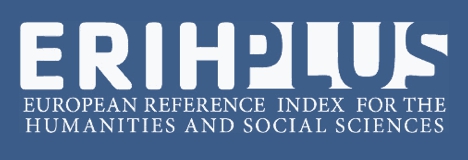Landscape, photography and affective maps: a dialogue between cultural geography and environmental psychology
Abstract
The article discusses the apprehension of reality from the category of landscape analysis, from the perspectives of cultural geography and environmental psychology. To do so, the Itaperi campus, at the State University of Ceará (UECE), was taken as study, with the objective of knowing how affective relationships are woven between students and the university. By showing how the apprehension of the landscape causes feelings in individuals and enables multiple ways of expressing their experience about places. The methodology adopted was that of the Affective Maps Generator Instrument (IGMA). The study reveals the feelings that permeate the daily experience of students with the university, through the images of belonging, pleasantness, insecurity and destruction elucidated by affective maps.
References
BOMFIM, Zulmira Áurea Cruz. Cidade e Afetividade: Estima e Construção dos Mapas Afetivos de Barcelona e São Paulo. Fortaleza: Edições UFC, 2010.
CLAVAL, Paul. A geografia cultural. 3ª ed., Florianópolis: Ed. da UFSC, 2007.
______. A paisagem dos geógrafos. In: CORRÊA, R. e ROSENDAHL, Z. (orgs.). Geografia cultural: uma antologia. Rio de Janeiro: EdUERJ, 2012.
CORRÊA, Roberto Lobato; ROSENDAHL, Zeny. A geografia cultural brasileira: uma avaliação preliminar. In: CORRÊA, R. e ROSENDAHL, Z. (orgs.). Geografia cultural: uma antologia. Rio de Janeiro: UERJ, 2012.
COSGROVE, Denis. A geografia está em toda parte: cultura e simbolismo nas paisagens humanas. In: CORRÊA, R. e ROSENDAHL, Z. (orgs.). Geografia cultural: uma antologia. Rio de Janeiro: EdUERJ, 2012.
COSTA, Otavio José Lemos. Memória e Paisagem: em busca do simbólico dos lugares. Espaço e Cultura, UERJ, RJ, n. 15, p. 33-40, Jan./Jun. de 2003.
DUNCAN, James S. O supraorgânico na geografia cultural americana. In: CORRÊA, R. e ROSENDAHL, Z. (orgs.). Introdução à Geografia Cultural. Rio de Janeiro: Bertrand, 2003.
______. Após a guerra civil: reconstruindo a geografia cultural como heterotopia. In: CORRÊA, R. e ROSENDAHL, Z. (orgs.). Geografia cultural: uma antologia. Rio de Janeiro: EdUERJ, 2012.
GOMES, Paulo Cesar da Costa. O lugar do olhar: elementos para a geografia da visibilidade. Rio de Janeiro: Bertrand Brasil, 2013.
HOLZER, Werther. O lugar na geografia humanista. Revista Território, Rio de Janeiro, ano 4, n. 7, p. 67-78, jul./dez. 1999.
MANDAROLA JÚNIOR, Eduardo; HOLZER, Werther; OLIVEIRA, Lívia de. (Orgs). Qual o espaço do lugar? geografia, epistemologia, fenomenologia. São Paulo: Perspectiva, 2012.
MEINING, Donald W. O olho que observa: dez versões da mesma cena. Espaço e Cultura, UERJ, RJ, n. 16, p. 35-46, Jul./Dez. de 2003.
MOSER, Gabril. Psicologia ambiental. Estudos de psicologia, Natal, v.3, n.1, p.121-130, enero-junio, 1998.
SAUER, Carl O. A morfologia da paisagem. In: CORRÊA, R. e ROSENDAHL, Z. (orgs.). Geografia cultural: uma antologia. Rio de Janeiro: EdUERJ, 2012.
TUAN, Yi-Fu. Espaço e lugar: a perspectiva da experiência. Londrina: Eduel, 2013.
______. Topofilia: um estudo da percepção, atitudes e valores do meio ambiente. Londrina, PR: Eduel, 2012.
VYGOTSKY, L. S. Psicologia Pedagógica. São Paulo: Martins Fontes, 2001.

This work is licensed under a Creative Commons Attribution-NonCommercial 4.0 International License.
Policy Proposal for Free Access Journals
Authors who publish in this journal agree to the following terms:
a. Authors retain the copyright and grant the journal the right of first publication, with the work simultaneously licensed under the Creative Commons Attribution License which allows the sharing of the work with acknowledgment of the authorship of the work and initial publication in this journal.
b. Authors are authorized to take additional contracts separately, for non-exclusive distribution of the version of the work published in this journal (eg publish in institutional repository or as a book chapter), with acknowledgment of authorship and initial publication in this journal.
c. Authors are allowed and encouraged to publish and distribute their work online (eg in institutional repositories or on their personal page) at any point before or during the editorial process, as this can generate productive changes, as well as increase the impact and The citation of published work (See The Effect of Free Access).





















